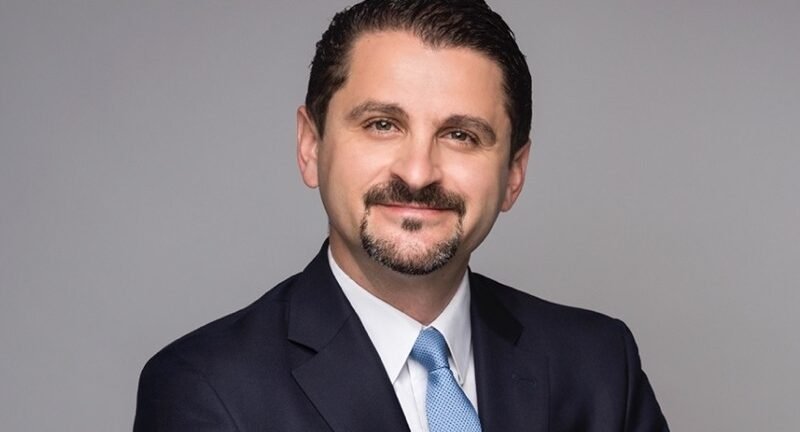As sustainability continues to shape the future of industries across the MENA region, companies are focusing on innovative strategies to align with global and regional sustainability goals. At the heart of this transition is the push for energy-efficient home appliances, reducing carbon footprints, and fostering collaborations between industry, academia, and communities.
In this exclusive interview, we speak with Faik Serkan Ergun, CFO at BSH Home Appliances (BOSCH Group), following his participation in the Green Genius Challenge Awards Ceremony at the University of Europe for Applied Sciences (UE) Dubai, held in collaboration with Bosch Middle East, to explore their commitment to sustainability, innovation, and community engagement.
- Your participation in today’s event highlights a focus on collaboration. Can you share why this engagement is important for your company?
Faik Serkan Ergun: Collaboration is key to sustainability. Our goal is to bridge academia, industry, and high school students, allowing young minds to contribute innovative ideas. The beauty of youth is their creativity and passion for sustainability. They approach challenges without constraints, which is why it is crucial to give them a voice in shaping a sustainable future.
Additionally, this event marks one of the university’s first major initiatives to create synergy between high school students and industry leaders. It’s a step towards empowering the community, a fitting theme considering this year has been declared the ‘Year of Community’ by His Highness Sheikh Mohamed bin Zayed Al Nahyan.
- What is your strategy for engaging with the community beyond this project?
Ergun: Our focus remains on sustainability, and we are committed to integrating it into everything we do. While home appliances may not be the first thing that comes to mind when thinking about sustainability, they have a significant impact.
Take a refrigerator, for example—it runs 24/7 in almost every household. Now, think about how many fridges exist in a single country. When you add up their energy consumption, it becomes clear why energy efficiency in home appliances matters.
We aim to continue organising activities that raise awareness about the role appliances play in sustainability. Beyond regulations and industry standards, consumer choices are critical. That’s why educating consumers on the benefits of energy-efficient appliances is a priority for us.
- Despite the benefits of energy-efficient appliances, their adoption remains relatively low in the UAE. Why is that?
Ergun: The UAE is actually leading the region, and in some cases, setting a global example when it comes to energy efficiency regulations. Whenever new energy efficiency standards emerge in Europe, the UAE is often among the first countries in the region to adopt them. From a regulatory standpoint, we are in a strong position.
However, the bigger challenge is cultural awareness. Consumers ultimately make the purchasing decisions, and many prioritize cost over long-term environmental benefits. This is where education plays a critical role. Our responsibility is not just to provide energy-efficient products but also to help consumers understand why these choices matter.
One example is our partnership with local authorities, including DEWA and other water authorities, to promote sustainable appliance usage. A simple switch to dishwashers, which use around 5-6 litres of water compared to 150 litres for hand washing, can have a massive impact in a country like the UAE. Imagine a region like ours, where fresh water resources are scarce – that’s why we are working with the relevant authorities.
- Events like this generate innovative ideas. How does your company ensure these ideas are implemented?
Ergun: Ergun: Firstly, we will follow up with participants from this event, assessing whether their ideas align with our ongoing projects or if they introduce new solutions worth exploring.
[Ergun’s colleague adds] We don’t just collect ideas—we invest in them. For example, in a previous competition in Turkiye, a student proposed repurposing washing machine motors for reuse in future cycles. We acquired the rights to this idea, compensated the student, and are now working on its implementation at our ESG factory in Istanbul.
- How do you ensure sustainability messages reach consumers through your dealers and retailers?
Ergun: Ergun: Education is crucial, especially in the project-based business. With so many real estate developments across the UAE, we work closely with project developers to integrate sustainable appliances into their planning. Whether it’s hotels, residential projects, or commercial properties, raising awareness about energy-efficient choices remains a key focus.
[Ergun’s colleague adds] Additionally, our local distributors and partners help spread the message of sustainability. For instance, in refrigeration, we incorporate over 35 sensors that optimize energy usage based on content load.
Similarly, our washing machines use sensors to determine water temperature, detergent levels, and cycle efficiency, ensuring optimal resource utilization.
- What steps is your company taking to promote appliance recycling?
Ergun: Recycling is a crucial part of our sustainability strategy. Last year, we launched a campaign in the UAE, collecting old appliances—regardless of the brand—and collaborating with recycling companies to ensure proper disposal. Consumers were incentivized with discounts for trading in their old, less efficient appliances for new energy-saving models.
This initiative had dual benefits: reducing electronic waste and accelerating the transition to energy-efficient appliances in households.
Speaking with Faik Serkan Ergun highlighted just how committed the industry is to making home appliances more sustainable. As the MENA region adapts to new challenges, companies are stepping up efforts to boost energy efficiency, inform consumers, and introduce smarter technologies.



